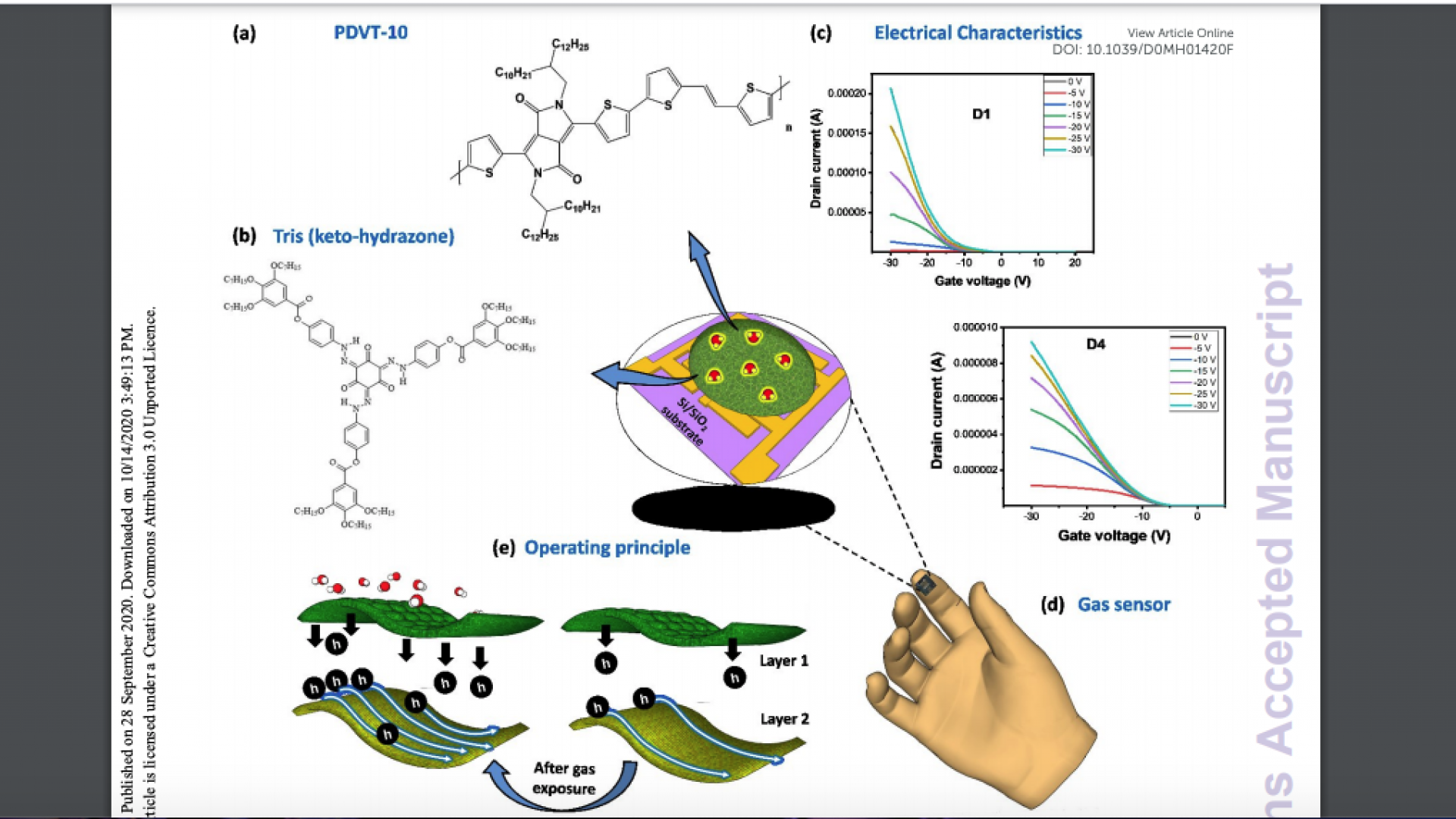Saravanan, Yuvaraja, et al. "A highly selective electron affinity facilitated H2S sensor: the marriage of tris (keto-hydrazone) and organic field-effect transistor." Materials Horizons, 2020.
Conjugated polymers (CPs) are emerging as part of a promising future for gas-sensing applications. However, some of their limitations, such as poor specificity, humidity sensitivity and poor ambient stability, remain persistent. Herein, a novel combination of polymer-monomer heterostructure, derived from CP (PDVT-10) and a newly accomplished monomer [tris(keto-hydrazone)] has been integrated in an organic field-effect transistor (OFET) platform to sense H2S selectively. The hybrid heterostructure shows an unprecedented sensitivity (525 % ppm-1) and high selectivity toward H2S gas. In addition, we demonstrated that the PDVT-10/tris(keto-hydrazone) OFET sensor has lowest limit of detection (1 ppb), excellent ambient stability (~5 % current degradation after 150 days), good response-recovery behavior, and exceptional electrical behavior and gas response reproducibility. This work can help pave the way to incorporate futuristic gas sensors in a multitude of applications.
